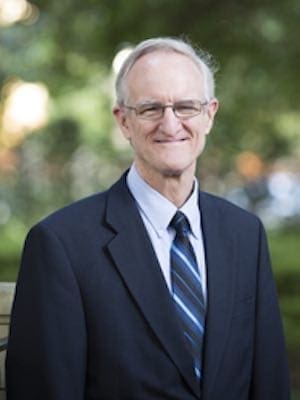The ordination of women as ministers–deacons, pastors and others–is controversial in Baptist life. A few Baptists are open, many (especially in the South) are adamantly opposed and some affirm women as ministers for congregations other than their own. During the last year, I participated in the ordination of two women and have joined a church that has a pastor who is a woman. Is this Baptist heresy at its finest or is this simply church?
–The Deacon. The new church–a split due to the fires of fundamentalism–did not initially elect a “deacon board.” They wanted to focus on lay leadership, the priesthood of all believers. Memories of deacon control were too fresh.
When a decision to select two deacons was made, the focus was to be on ministry and leadership by example. Consequently, two seasoned Christians were elected as “deacon-servants.” The church was not out to make a statement. The election of Eugenia McDilda was simply the logical choice. No one at The Oaks Baptist Church (in Lyons, Ga.) knew a more effective servant or a more devout Christian. She embodied the biblical admonition to pray without ceasing. The whole church cried tears of joy as they all participated–most for the first time in their lives–in the laying on of hands. I was blessed to be the interim pastor.
–The Pastor. After leaving Georgia to live in Texas my family joined Calvary Baptist Church in Waco. Julie Pennington-Russell has been the church’s pastor since 1998. Upon her arrival, Calvary lost several dozen members and they were picketed by persons (Baptists for sure) opposed to woman pastors.
Today Calvary is a vibrant congregation. Membership is diverse. Students from Truett Theological Seminary (and there are many) find in “Pastor Julie” a model for ministry. She is known by all who experience her ministry as a powerful preacher and compassionate pastor. I like to use the word “genuine” to describe her. I am blessed to experience the ministry of this shepherd.
–The Praise Dancer. Just this past weekend, I returned to Georgia to participate in an ordination service. I gave the “charge to the candidate,” a student from McAfee School of Theology. As an undergraduate, Angela Yarber was my “work-study” student, the youth minister of my daughter, a friend to my son and a co-worker with my wife and me. She became a part of the Weaver family.
When we first talked about her call to ministry early in her college days, Angela said, “I feel called to praise dance.” And I said, “OK,” and after a pause added, “what exactly is that?” And then I said, “If that is your call, pursue it and let’s see how many doors God opens up.” Of course the doors flew wide open. I learned about liturgical dance and its roots in the Old Testament; the ministry is not new, we were reminded! I even tried it until students reminded me of my call.
At college and at church, Angela’s ministry of “creative movement” equipped the saints for ministry and built up the body of Christ in ways I never imagined. Believers, especially young people, actually participated in worship. Of course not everyone was receptive to praise dance, but because the young woman lived a life worthy of the call, they soon learned to appreciate her ministry. Impeccable character will do that.
Angela (who also served with remarkable effectiveness as a youth minister) embodied a ministry that said, “Each of you can minister in your own creative way.” Her ministry preached and practiced the priesthood of all the laity, the unique giftedness of each person before God and the truth that in Christ, there is neither Jew nor Greek, male or female, slave or free, for we are all one in Christ Jesus. Ordination (and the laying on of hands of the whole congregation) of the praise dancer/youth minister was a powerful affirmation that God will use her gifted creativity in these and other ministries in the future.
–A Trinity of Blessings. So what to make of this story of three ordained women ministers? Are these experiences evidence of Baptist heresy continuing to proliferate, or have I just experienced the power of doing church?
If fundamentalism and its opposition to woman in positions of spiritual leadership is orthodoxy, then I’ll be called a heretic on this issue. Baptist life is full of frustrations these days, but affirming the ministry and ordination of these three women is a trinity of blessings.
Doug Weaver is assistant professor of religion at Baylor University.

